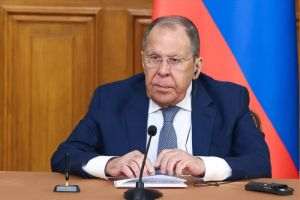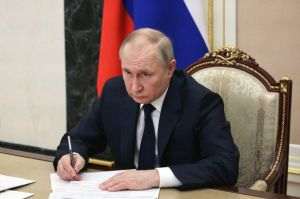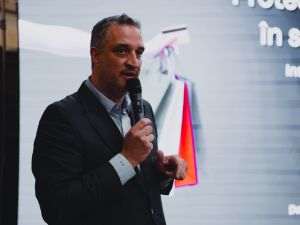
Radu Soviani: I'll start by asking you what's your opinion about the mass privatization in Romania, especially through what we know as SIFs.
Ludwik Sobolewski: When I worked in Romania, this was one of the topics which was quite relevant for the development of the capital markets. However, it's a bit forgotten. So it was remembered as something that took place essentially in the nineties. And the concept was this issuing voters, giving these vouchers to population with hopes that they will become shareholders, they will become aware of what they have. So, they will consider this to be really something important and valuable for them. However, it didn't work well and not only in Romania and in the Czech Republic, also this concept of, you know, privatizing the economy after the collapse of communism through issuing vouchers and to going really very, very broadly and public, was not successful because it led to the concentration of those assets and power and, you know, in favor of a very small group of interests in the Czech Republic, it mainly served the interest of the financial institutions.
In Poland, we had also something resembling this approach to privatization. But happily, enough, it was with very, very limited scope. So it all affected, so to speak, a relatively small number of companies. So the effects, which were not necessarily the best ones, were not so spread out over the whole economy. But Poland have chosen the way of rather selling the assets through different types of the transactions like, you know, stock exchange, stock exchange transactions or to strategic investors. And this was the way a large portion of the Polish economy has been privatized. I think this way was quite effective.
Radu Soviani: In Romania, the SIFs have originally held like 30% of the economy. And there were like 17 million shareholders. Now they own much less than 30%, but there are still 7 million shareholders, the so-called dormant shareholders, who do not take action. How would you characterize this situation and who takes advantage of this situation?
Ludwik Sobolewski: Well, it is quite obvious what is the disadvantage of this situation, because, you know, from the perspective of the capital markets, these dormant accounts is like lost assets because we could have had, I'm referring to my years, which when I worked in the in Romania at the Bucharest Exchange, we could have had a new free float, like old and new, because of course, these shares are held by some people, even by millions of people. And then counting these assets as millions of euros, it was never, it was never actually quite certain what is the value of these holdings. But I think we had estimations that this is at least a couple of hundreds of millions of Euros, maybe even approaching one 1 billion. So, this was one of the chances for the market.
And solving this issue was not easy. It generally required the support of a few key institutions like the ASF, obviously the stock exchange also Depozitarul Central. And last but not least, I mean by far, not least the SIFs themselves. So, unfortunately we never had this situation of all these institutions were acting in concert, in order to convert these dormant accounts into at least to a substantial part into assets that could be put again on the market.
I managed also to get the interest of EBRD with this, let's say, problem. And we had a good discussion and even there was a beginning of a project how to solve this problem, there was a council that we figured out together with EBRD mission to Romania and also involving some people from London that, for instance, a special fund could be created and these funds could make an offering to the holders of those accounts in order to ensure a sort of professional management of these assets.
Of course, the biggest problem within this general problem was that a lot of people were not aware that they had these shares.
Radu Soviani: The same now.
Ludwik Sobolewski: Yes, the same now. And I think now, this is even deeper. 5 or 10 years ago already we had countless stories about people who already passed away. And the children of people who carried the right to inheritance, they simply were not even aware of the fact that in the family, there was such an asset. So, in order to handle this aspect of the whole problem, it was necessary also to have a special law. A special law that would somehow regulate the situation of those really dormant not even dormant, but even unaware, so to speak, unaware that there were accounts, but there was never something like decisive support for this kind of thinking, so that it didn't happen.
One of the arguments was that it was something like a constitutional issue, as well. But, of course, if we had more unanimity as regards taking decisive actions, including regulatory action, then this problem had a chance to be solved.
Radu Soviani: Who opposed more? Who should have done more? It was the ASF? It was the SIFs? Who opposed more this project?
Ludwik Sobolewski: Well, my memory tells me that mainly the ASF, or maybe not the ASF as a whole, but a part of us of and especially the head of the capital market division within the ASF and we could say the SIFs, themselves, even though I was always avoiding to generalize when it comes to the SIFs, because within this group of, let's say fund or companies, I had the pleasure to talk to people who were professional and they were thinking and doing about the business and especially the business and the financial markets.
But unfortunately, there were also people who were opposing to any change, any reform. And they rather treated the SIFs as their playgrounds. So this small universe was not homogeneous. However, I would say not progressive enough to form a strong force that will help us implementing this kind of a reform.
And, of course, when it comes to this project that we had together with EBRD, at the certain moment, which I mentioned, this concept of a Fund that would concentrate the holdings was like inevitably linked to the change of the famous voting limits within the SIFs, which at the time was set at 5%. So obviously, this was also like an obstacle for anyone that would like to solve this problem.
And, of course, solved in a way which would be profitable for the one who would undertake such an action. So, this 5% was really an impediment. And some of the SIFs, in a very determined way, defended this limit because it generated something that they perceived as advantageous to the to the SIFs managers, especially.
Radu Soviani: Now we don't have this limit, 5% limit anymore. But we have another kind of situation. SIF1 controls SIF4 which controls SIF5. So SIF1 controls SIF4 and SIF5. How do you see how did we get in such situation? What are the advantages? What are the disadvantages?
Ludwik Sobolewski: I think that it clearly evolves into consolidation of assets. Right? So, it has a business logic especially if we mean asset management efficiency under this business which is here. So, it sounds reasonable to have these assets. That is a legacy of the privatization divided between five organizations. Definitely, it made some sense at the very beginning, and I can perfectly understand the rationale which was behind when the whole structure was created, but for the efficiency reasons and also in order to lower the cost of this asset management, the consolidation seems to be a better direction than to maintain the status quo. It would be to have all these dispersed between five or so organizations. Of course, this consolidation is far from being perfect because still we have theoretically five different funds. And I might guess that the decision-making process is not that much clear and transparent, and, let's say, optimal, and the SIFs are listed entities, so everything that could be enhancing the way the assets, the underlying assets, are managed, everything that it could imply a higher valuation of the SIFS, from a broader perspective, is good. So, I would rather support this, but I would be even more radical. Probably the future is rather just to liquidate these separate institutions and just to have one Fund. And the more professional it will be, the better. And any ties or linkages with the privatization is rather now a sort of a memory is a way of thinking and the spirit, which is around, in my view has nothing to do with the privatization and with this mass ownership or democratic ownership, so ideas that were behind many years ago.
However, one is still ahead of us. I mean it would really be good to solve the problem of these dormant accounts, because it's not only about free float, money, and the evaluation, it's also the question of financial education, financial literacy. It is a chance to really get new participants of the capital market, on the side of retail investors.
This is quite a unique chance or a chance to convert something which is now clearly like a missed opportunity into a very productive process that could really enhance some parameters of the of them all. It should be a process.
Radu Soviani: In such consolidation process do you think that this concentration SIF1, SIF4, SIF5 might have the interest to awake the dormant accounts or the unaware shareholders? Because we see something very interesting in Romania. Now SIF1 for instance, gives money to some investment funds, they buy, for a commission, shares for SIF1. They decrease the liquidity, and they vote for the same management always. How do you see the situation?
Ludwik Sobolewski: Well, the techniques are clearly evolving, but the objective remains the same. It was the same under my mandate at the Bucharest Stock Exchange. And this is, of course, a kind of a problem because apparently, there is a certain attitude, which is still there. I mean, this attitude, which puts at the first position, the interest of certain people.
So, so this is a problem. I wouldn't say that this is something characteristic only for Romania, but definitely the way to find the right the right balance is to proceed with some structural changes that will be brought by the law, by the regulator, by the changes and within the regulations.
Radu Soviani: While you're heading the Bucharest Stock Exchange. I followed you as a journalist and you did some extraordinary things for the market. More transparency, more corporate governance. Well, who was your biggest opponent?
Ludwik Sobolewski: Well, I would prefer rather to concentrate on positive aspects of my mission to Romania. And I think there is a list of considerable achievements. We managed to remove some barriers and obstacles that were within the institution of the central market infrastructure, business wise. I think that the more time has elapsed, the more people and market participants appreciate the existence of the AERO market.
I even met recently in Warsaw with one of the most important private investors from Romania who said that really AERO is giving a substance for the market currently. Somehow taking up what you said I would comment on this that of course the list of those positive changes could have been much, much longer. And the changes could have been even deeper if we had a broader support and more determined support from those who had the instruments to produce the change. Which was not the case.
Radu Soviani: One more question, Mr. Sobolewski. Why, the Warsaw Stock Exchange is so far away from the Bucharest Stock Exchange, in terms of everything?
Ludwik Sobolewski: Well, a lot of explanations could be given in this regard, of course, it's a different history, it's a different level of engagement of many people and institutions into the development of something that we call the capital market. It's also the question of the size of the economy.
It's also the question to a certain extent of some decisions that could have been worst, but fortunately they were not that bad. Taken in the past. Yeah, we could probably talk about risk aversion and the level of financial education, a lot of elements. But all in all, I would say because I'm a quite active observer of what's going on in the capital market in Romania now that well, it could have been much worse.
Now, there is a lot of chances. And Romania is now put on this list or is qualified as secondary emerging market by FTSE Rusell, which was also one of my objectives. So I was enormously satisfied when it finally happened.
But for sure it is missing, I would say, projects that would define the market in a new way. So, it's not sufficient to address the entrepreneurs and the investors, please come and list your companies and please invest. But some structural changes are needed in order to give to the market new impulses. So, in order to define the picture of the market.
Radu Soviani: Would you say that the way it evolved the mass privatization process through the stock exchange in Bucharest is one of the reasons, if you can say this, why? If you have say is not, why?
Ludwik Sobolewski: This is certainly one of the reasons. I mean, this decision that was taken remotely in the past about the mass privatization and the creation of the SIFs, it was all rather counterproductive. I'm saying with full awareness, rather, because there are minuses and pluses. But overall, I think it was not fueling the forces of the market and from this point of view, something which happened in 2013 and 2014. So the listings of Nuclearelectrica, Romgaz, Electrica and some other companies. Well, this were the steps in good directions, again, charged with some limitations and mistakes like for instance, you know, setting a minuscule number of shares to the market.
So, the fact that it was never big, like big transactions, and of course, I had to use a lot of energy and efforts to convince everyone around that this thinking about dual listings, I mean, Bucharest, London, does not make any sense. And it's even a step backwards as regards the development of the markets. And this was rather confirmed by the numbers, by the reality and so on. And so on. So, I would say that there are also some convictions, some views. People do not always devote enough reflection to such topics and they follow a way which is obviously dictated by some particular interest.
I'm alluding to this thinking that the listings in London will save the Romanian capital markets, which is completely contradictory. Right.
Radu Soviani: These were all my question, if you have something else to add about the mass privatization process, about the result, about the concentration at the SIFs, about other things.
Ludwik Sobolewski: I think that the Romanian state will take good decisions as regards companies in which the state has large stakes. It may happen if the policymakers in Romania understand that having a liquid, vibrant capital markets serves the interest of the general economy and also helps solving a lot of problems that the public administration has.
So I'm hoping for this and that this will be accompanied by the same processes within the private entrepreneurial circles in Romania and as a result, there will be a participation of different categories of investors, individual retail clients from Romania, but also institutional capital. I hope that the pension fund will be normally, a very important actor of the capital market and only in this way, Romania can be even more on the radar of institutional, global or international investors.
Radu Soviani: Thank you very much for this interview!



















































